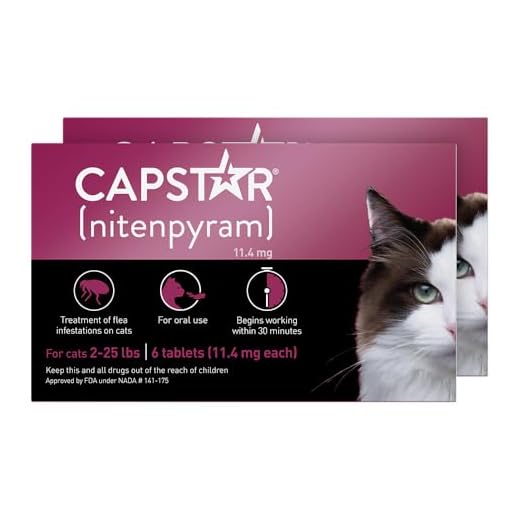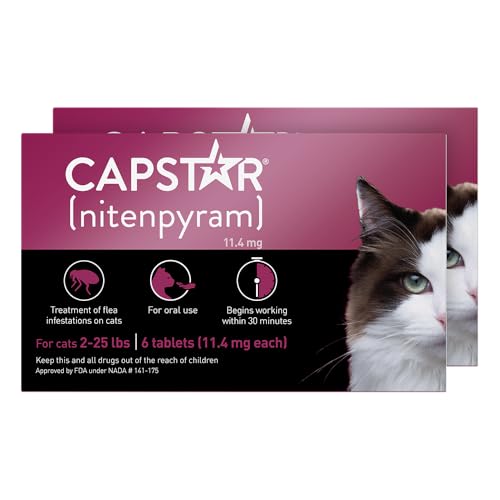



Regular grooming is a quick fix. Ensure my fur stays clean and free from dirt and debris that can contribute to unpleasant odors. Bathing can help, but be cautious not to overdo it. A gentle wipe with a damp cloth can suffice between baths.
Diet plays a significant role. Check if the food contains high-quality ingredients. Switching to a premium diet can improve digestion and reduce any unwanted scents. Fresh water should be available at all times to aid in proper hydration and health.
Dental hygiene is crucial as well. Bad breath can lead to other issues. Regular brushing, along with vet check-ups, can keep my teeth and gums healthy. Dental treats are also a fun way to help manage oral health.
Consulting a veterinarian is essential if issues persist. They can identify underlying health problems that may require treatment. Regular check-ups can catch any potential issues early and keep me feeling my best.
Why My Feline Friend Has an Unpleasant Odor
First thing to consider is dental hygiene. Regular brushing and vet check-ups can prevent bad breath that might mimic foul scents. If there is buildup or infection, it can lead to an unpleasant aroma.
Another aspect is digestive health. Issues like food intolerances or parasites can create gas and odor. A vet visit can help identify any dietary changes needed.
Skin conditions can also contribute. Allergies or infections may cause odor, so regular grooming is essential. Keeping fur clean and dry helps maintain freshness.
Lastly, pay attention to litter box habits. A dirty box can produce lingering odors. Regular cleaning can make a significant difference in overall smell.
Identifying the Source of the Odor
If you’re picking up an unpleasant scent, the first step is to check my breath. Dental issues, like periodontal disease, can lead to foul odors. Regular dental cleanings and using products that promote oral hygiene are key. If my mouth is fine, examine the ears. Ear infections can produce a strong, offensive smell. Cleaning my ears regularly can prevent this problem.
A visit to the litter box is essential. An unclean litter box can lead to odors lingering on my fur. Make sure to scoop daily and change the litter often. Skin conditions, such as infections or allergies, may also cause an unpleasant smell. Look for redness, swelling, or unusual discharge on my skin. Consulting a vet for skin issues can help find the right treatment.
Parasites can be a sneaky source of odor. If I have worms, it can lead to a foul smell. Using the best broad spectrum dewormer for cats can help eliminate these pests and keep me healthy. Lastly, ensure my diet is appropriate for my needs. Poor quality food may lead to digestive issues and contribute to the smell. Understanding where protein synthesis begins can guide you in choosing the right nutrition for me.
Common Health Issues Linked to Foul Odors
Regularly encountering unpleasant scents can indicate underlying health problems. It’s crucial to monitor any changes in aroma and seek veterinary advice if necessary.
Dental Disease
Bad breath often stems from dental issues. Tartar buildup, gingivitis, or periodontal disease can create foul odors. Regular teeth cleaning and dental check-ups can prevent these issues.
Gastrointestinal Problems
Digestive disturbances, such as parasites or inflammatory bowel disease, can lead to unusual scents. Monitoring food intake and stool quality can help identify these concerns early. If you notice persistent odors, consult with a veterinarian for appropriate diagnostics and treatment.
Impact of Diet on Your Feline’s Odor
Switching to high-quality, protein-rich food can significantly reduce unpleasant aromas. Grain-free options are often beneficial as they mimic a natural dietary pattern.
Consider these dietary adjustments:
- Incorporate wet food; it aids hydration and can improve digestion.
- Introduce probiotics; they promote gut health and minimize foul odors.
- Avoid overly processed ingredients; they may lead to digestive issues.
Monitor the impact of treats as well. Some may contain additives that contribute to undesirable scents. Opt for natural snacks without artificial preservatives.
Hydration plays a key role; encourage drinking by providing fresh water regularly or using water fountains. Proper hydration supports digestive health and reduces the likelihood of bad smells.
Lastly, consult a veterinarian to ensure the chosen diet meets all nutritional needs. Adjustments based on specific health conditions can also enhance overall well-being and minimize any offensive odors.
Grooming Habits and Their Effects on Odor
Regular grooming is crucial for maintaining a pleasant scent. I keep my fur clean by licking it daily, which helps remove dirt and excess oils. When grooming is neglected, bacteria and debris can accumulate, leading to unpleasant odors.
Pay attention to areas like the ears, paws, and rear. These spots can trap moisture and dirt, contributing to foul smells. I recommend checking these areas often and ensuring they’re clean.
Using a brush can also help. It reduces loose hair and stimulates the skin, promoting natural oil distribution. This keeps my coat healthy and fresh. If you notice a strong odor, it may indicate a need for more frequent grooming sessions.
Consider a bathing routine as well. While I don’t enjoy baths, they can be necessary for some furry friends. Use cat-specific shampoos and avoid over-bathing, which can strip natural oils and result in skin issues.
Lastly, if odors persist despite good grooming, it might be a sign to visit the vet. Professional advice is key to addressing any underlying concerns effectively.
When to Consult a Veterinarian
If you notice persistent odors emanating from your furry friend, it’s time to take action. A visit to the veterinarian is necessary if the unpleasant aroma lasts more than a day or is accompanied by other symptoms such as vomiting, diarrhea, or changes in behavior. These signs may indicate an underlying health issue that requires professional attention.
Monitor for any unusual changes in appetite or drinking habits; these can also signal a need for veterinary intervention. If there’s a noticeable increase in grooming or licking of specific areas, this could point to a skin condition or infection that needs treatment.
Consider scheduling an appointment if there are any signs of distress, discomfort, or pain. Swelling or redness around the mouth, or any difficulty in eating, warrants immediate consultation. Early detection is key in addressing potential health problems effectively.
Finally, keep track of any changes in litter box habits. Straining to urinate or defecate can indicate serious issues such as urinary tract infections or gastrointestinal problems. Don’t hesitate to reach out to a veterinarian if any of these concerns arise.
FAQ:
What causes my cat to smell like rotten eggs?
A cat that smells like rotten eggs may be experiencing a few different issues. One common cause is a dental problem, such as periodontal disease, which can lead to bad breath and an unpleasant odor. Another possibility is gastrointestinal issues, like flatulence or an imbalance in gut bacteria, which can produce foul smells. Additionally, if your cat has been eating something unusual or has a skin infection, this could also contribute to the odor. If the smell persists, it’s advisable to consult a veterinarian for a thorough examination.
Is it normal for my cat to have a foul odor?
While cats can have a variety of smells, a strong odor resembling rotten eggs is not typical and may indicate an underlying health issue. Conditions such as dental disease, digestive problems, or infections can lead to unpleasant smells. If your cat’s odor is accompanied by other symptoms, such as vomiting, diarrhea, or changes in appetite, it’s best to seek veterinary advice. Regular grooming and dental care can help maintain your cat’s overall health and minimize odors.
How can I help my cat if it smells like rotten eggs?
If your cat has a smell reminiscent of rotten eggs, the first step is to identify the cause. Start by checking your cat’s mouth for signs of dental problems, such as redness or tartar buildup. Ensure your cat is eating a balanced diet and monitor for any changes in digestion, such as excessive gas or changes in stool. Regular grooming can also help reduce odors. If the smell continues or if you notice other concerning symptoms, consult a veterinarian to rule out any serious health issues and get appropriate treatment.








